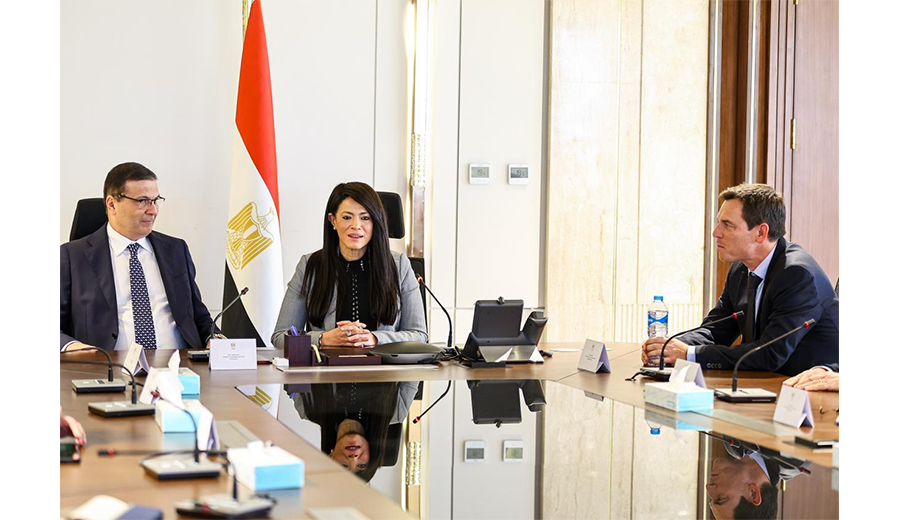The Minister of Planning and Economic Development Discusses the Plan and Budget for the Programs and Performance of the Ministry and its Affiliates for the Fiscal Year 2023-2024

08 June 2023
The Minister of Planning and Economic Development, Dr. Hala El-Said, held a meeting with Engineer Khaled Mustafa, the Permanent Undersecretary of the Ministry, and the strategic management team in the Ministry, headed by Engineer Omnia Kamal, the supervisor of the department, to discuss the plan and budget for the programs and performance of the Ministry and its affiliates for the fiscal year 2023-2024.
During the meeting, Dr. Hala El-Said stressed the importance of continuing the strategic management efforts and enhancing the role of continuous cooperation and the participatory framework that characterizes the ministry, noting the need to continue to put the citizen in the first place while developing plans and performance indicators and following them up. Additionally, El-Said stressed the importance of activating internal institutional excellence standards and working to enhance the role of digital transformation and foreseeing the future in the ministry's new plan.
Eng. Khaled Mostafa stressed the course of the development of the strategic management and the governance of work in it, whether for the ministry or its affiliated bodies, and from there to the administrative apparatus of the state as a whole, touching on the strategic objectives of the ministry and important performance indicators, as well as the most important features of the new ministerial strategy, which started from 2022 to 2026.
Furthermore, Mostafa added that the strategy includes expanding economic development tasks by supporting the state's efforts in implementing the structural reforms program, enhancing the efficiency of public investment, reviewing and updating economic legislation, with the need to diversify the use of digital transformation mechanisms and tools that support planning, especially in light of the move to the new administrative capital in addition to developing cooperation mechanisms with affiliated entities to maximize the utilization of their technical, research and training capabilities.
Eng. Khaled Mostafa explained that within the framework of the role of the Ministry's strategic management in providing technical support to the state's administrative apparatus in the areas of strategic planning and policies, follow-up and evaluation, project management, programs and performance. The administration has issued many organizational and procedural guides to document the available work methodology, in addition to raising the capabilities of 1,500 representatives of strategic departments from the ministries and agencies moving to the new administrative capital, as well as providing technical support and training programs to the General Authority for Health Accreditation and Control and the Ministry of Justice.
For her part, Eng. Omnia Kamal reviewed the most important achievements of the Ministry's strategic plan during the period 2019-2022, referring to the impact of that plan on improving the standard of living of the Egyptian citizen, explaining that the total public investments during the period amounted to about EGP 2.5 trillion, pointing to the issuance of the citizen's plan for 27 Governorate, believing in the importance of transparency and ensuring citizen participation in the follow-up of implemented projects.
Kamal indicated that the ministry has raised the quality of government services provided to citizens by providing 127 mobile vehicles and developing 2,401 health offices within the birth and death registration system, following up that within the framework of capacity building and institutional reform, 40,000 trainees have been trained in the areas of strategic management, programs, performance, and economic feasibility studies. and entrepreneurship.
Kamal also addressed the achievements that have been accomplished at the national projects level through the launch of the Decent Life initiative, which targets 4,584 villages in 20 governorates, as well as the National Project for the Development of the Egyptian Family, which targets 1,520 Egyptian villages by achieving the economic empowerment of Egyptian women, and supporting developmental interventions on Service, educational, cultural and awareness levels, in addition to supporting the role of digital transformation in achieving development.
Finally, Kamal referred to the relentless efforts made by the Ministry in reforming the business and investment climate through the "Irada" initiative, which conducted a legislative assessment and purification of many decisions to reform investment grants.









